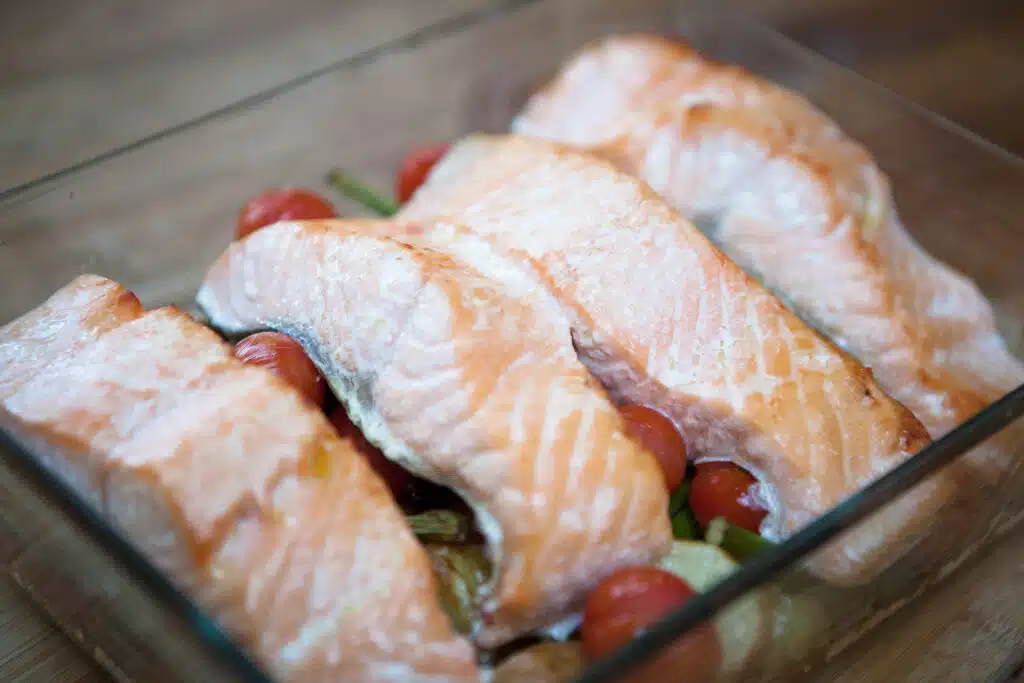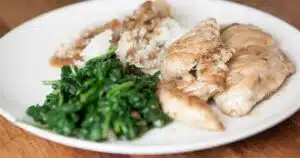Salmon is a great PCOS friendly food. It’s a good source of Omega 3 Essential fatty acids. And we know that Omega 3 helps to lower testosterone levels and a mange inflammation. So, I always try to make sure that we have salmon at least once a week. I’m going to share my favourite PCOS friendly salmon recipe with you…
Now, with 2 small children, dinner time can be stressful. I normally have Josh “helping” me (hanging on my legs, shouting for food). So, I like meals that are quick and don’t involve too much work. This One Pan Salmon fits the bill. It may take a little while in the oven but there is very little work involved, making it one of my favourite go-to meals.
If you are going to buy salmon, try find wild Alaskan salmon or any other wild salmon as it is much higher in Omega 3’s than farmed salmon.
Ingredients:
- 1 lb / 400g new potatoes, halved if large
- 2 tbsp olive oil
- 8 asparagus spears, trimmed and halved
- 2 handfuls cherry tomatoes
- 1 tbsp balsamic vinegar
- 2 salmon fillets, about 140g/5oz each
- handful basil leaves
Method:
- Heat oven to 220C / 430F. Tip the potatoes and 1 tbsp of olive oil into an ovenproof dish, then roast the potatoes for 20 mins until starting to brown.
- Toss the asparagus in with the potatoes, then return to the oven for 15 mins.
- Throw in the cherry tomatoes and vinegar and nestle the salmon amongst the vegetables.
- Drizzle with the remaining oil and return to the oven for a final 10-15 mins until the salmon is cooked. Scatter over the basil leaves and serve everything scooped straight from the dish.
- sustainable pcos weight loss strategies
- Over 5500 women have done it and seen results
- [bonus] Done for you pcos meal plans
- [bonus] intermittent fasting for pcos course
- [BONUS] personalised nutrition plan
JOIN OVER 5,500 OTHERS









